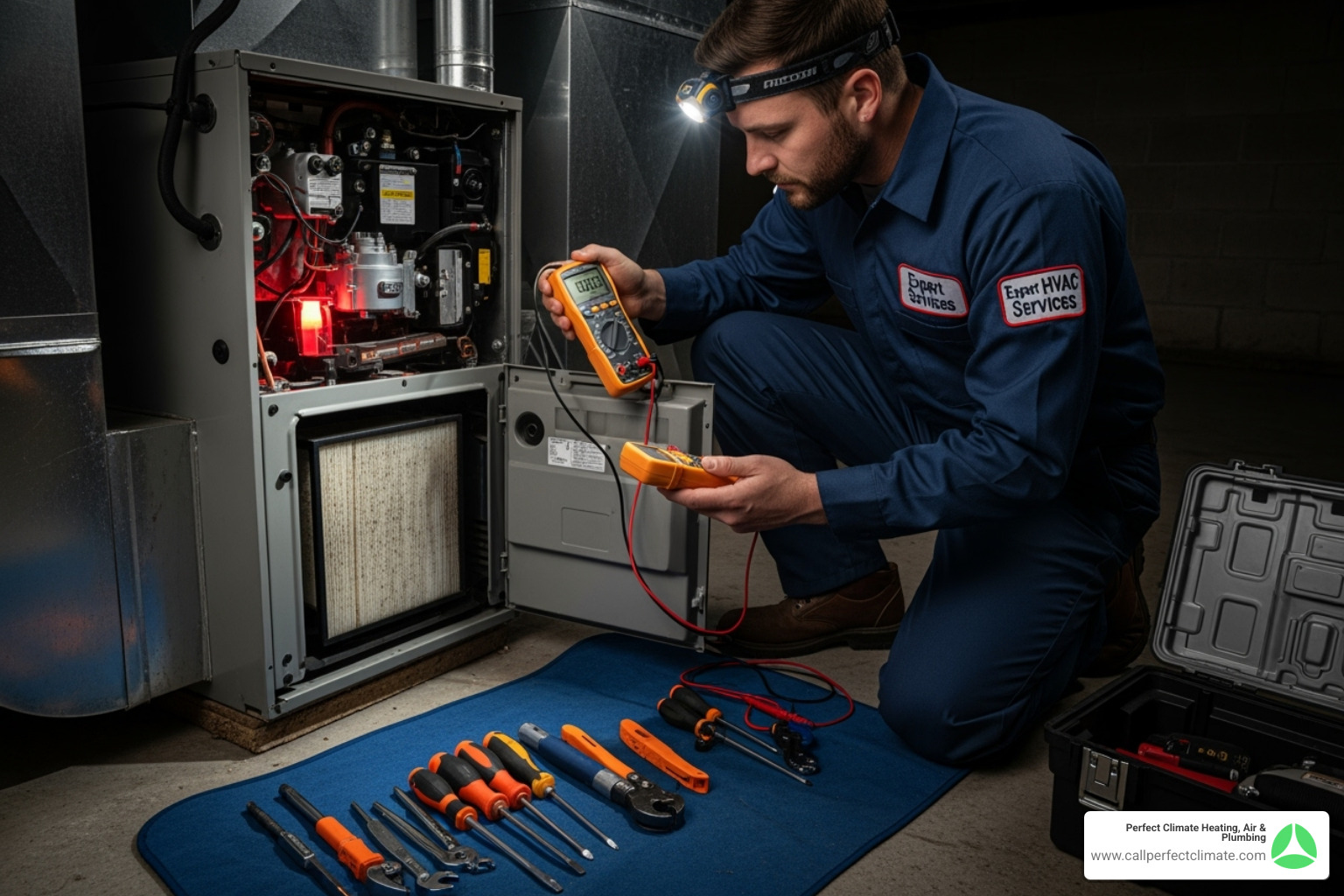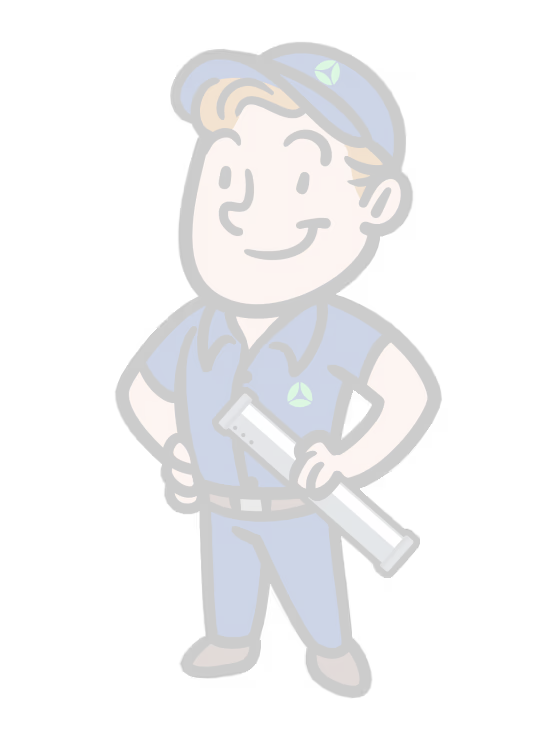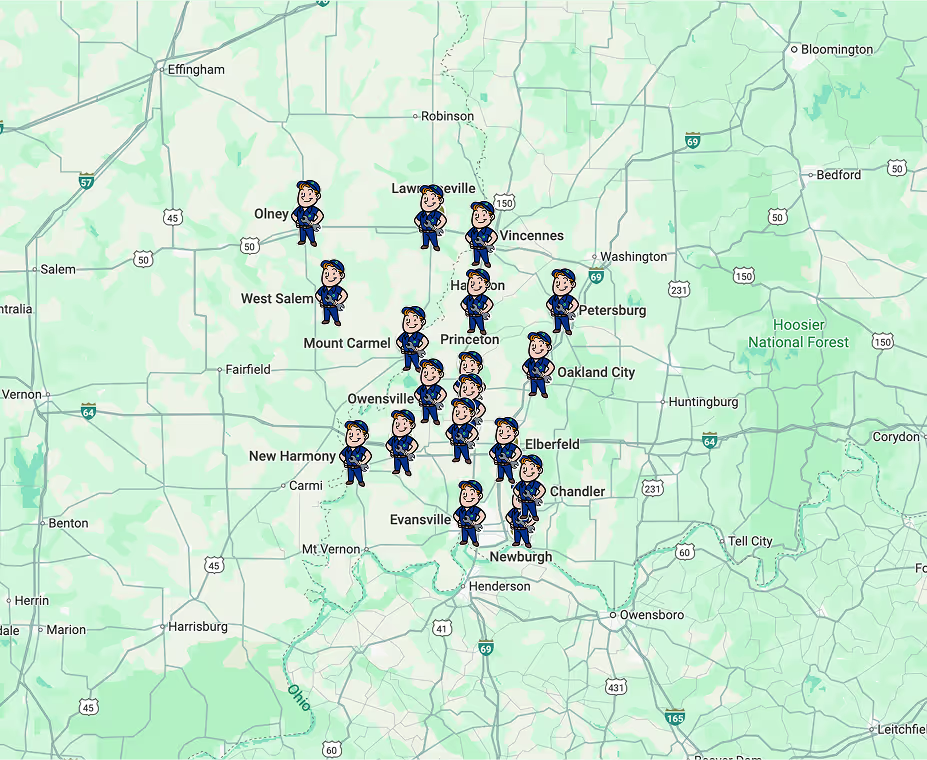Don’t Sweat It: Expert 24/7 HVAC Emergency Service is Here
When HVAC emergencies strike, quick action is crucial. Learn how to handle urgent situations and find reliable emergency service. Be prepared when you need help fast.


When Your HVAC System Fails: Recognizing True Emergencies
When your HVAC system fails, knowing whether it’s a true emergency can save you time, money, and stress. While not every issue is a crisis, some situations demand immediate HVAC emergency service to protect your home and family.
Quick Emergency Service Checklist:
- Call immediately: No heat in freezing weather, no AC during a heatwave (over 90°F), gas smells, carbon monoxide alarms, electrical issues, or major water leaks.
- Can wait: Minor temperature fluctuations, routine filter changes, general maintenance, or system upgrades during mild weather.
- Safety first: Always turn off your system and evacuate if you smell gas or hear a carbon monoxide alarm.
True emergencies put your safety, health, or property at immediate risk. This includes complete system failure during extreme weather, refrigerant leaks, electrical problems, or safety concerns like sparks and smoke. Non-emergencies, like routine maintenance or minor repairs in mild weather, can typically wait for regular business hours. Recognizing early warning signs like strange noises or smells is key, as these can quickly escalate into serious problems, especially in extreme temperatures.
Is It Really an Emergency? Key Signs You Need Help Now
When your HVAC system acts up, it can be hard to know if you need help right away. Some issues require immediate HVAC emergency service, while others can wait for regular business hours. Real emergencies involve potential property damage, health risks, and safety concerns that can escalate quickly, especially during extreme weather. Delaying repairs can lead to burst pipes, structural damage, or unsafe air quality. More importantly, extreme temperatures can create unsafe living conditions for your family, particularly children, the elderly, and pets.
Heating Emergencies (Winter)
A furnace failure on a frigid night is a clear emergency. When you have no heat and freezing temperatures outside, your home can lose heat quickly, leading to burst pipes and unsafe conditions. Beyond a complete failure, listen for strange furnace noises like loud booming sounds, whistling, or rumbling, which can signal serious internal problems. The most critical signs are gas or fuel smells or a sounding carbon monoxide detector alarm. If you experience either, evacuate immediately and call for professional help.
Cooling Emergencies (Summer)
Summer cooling emergencies can be just as dangerous as winter heating problems, especially during heat waves. When you have no AC in a heatwave, your home can quickly become unsafe, particularly for vulnerable family members.
Extreme heat can lead to serious health issues, with risks increasing significantly when temperatures rise above 90°F. Watch for critical cooling emergency signs: your system blowing warm air, refrigerant leaks (often indicated by hissing sounds or ice on the coils), and electrical issues like frequent breaker trips or burning smells. Significant water leaks around your AC unit also warrant an emergency call to prevent property damage and mold.
Vulnerable individuals including children, the elderly, people with chronic health conditions, and pets are at the highest risk during cooling emergencies. For more information on heat safety, visit the CDC’s Heat & Health Tracker and HEAT.gov.
Your family’s safety and comfort are what matter most. When you’re facing any of these emergency situations, don’t hesitate to call for professional help right away.
Your Immediate Action Plan for an HVAC Emergency
When your heating or cooling system suddenly fails, taking the right steps immediately can protect your family and prevent costly damage. Safety always comes first.
Before calling for help, a few simple checks can sometimes solve the problem or provide our Perfect Climate team with valuable information to help us resolve the issue faster.
What to Do Before You Call
- Check your thermostat: Ensure it’s on the correct setting (heat/cool) and the temperature is set properly. Also, check the batteries.
- Check the circuit breaker: If the breaker for your HVAC system has tripped, try resetting it once. If it trips again, call a professional immediately.
- Inspect the air filter: A clogged filter can cause your system to shut down. If it’s dirty, replacing it might solve the issue.
- Check your vents: Make sure all vents are open and not blocked by furniture or other objects.
- Note unusual sounds or smells: Pay attention to any strange noises or odors coming from your system. This information is very helpful for our technicians.
- Ensure proper ventilation: If it’s safe, open windows to ventilate your home while you wait for help.
When to Evacuate
Some situations require you to leave your home immediately for your safety. Your safety is worth more than any repair bill.
- If you smell a strong gas or fuel odor, leave immediately. Don’t use any electronics or create sparks. Once you’re a safe distance away, call your gas company and emergency services.
- When your carbon monoxide alarm goes off, treat it like the life-saving device it is. Turn off your heating system if you can do so quickly and safely, get fresh air into the house if possible, then evacuate. Call the fire department first, then call us.
- If you see visible smoke or sparks coming from your HVAC unit, you’re looking at a potential fire hazard. Shut off power to the unit at the circuit breaker only if you can reach it safely, then get everyone out and call 911.
These situations don’t wait for convenient timing, and neither should you. When you’re dealing with a true HVAC emergency service situation that involves safety risks, getting everyone to safety is the only priority that matters.
Emergency Call vs. Regular Appointment: Knowing When to Act Fast
Wondering if you need an HVAC emergency service call or if it can wait? Understanding the difference is key. Emergency service is for urgent situations, while regular appointments handle routine maintenance and non-critical repairs.
When to Schedule a Regular Visit
A regular appointment is appropriate for:
- Mild Weather Conditions: If temperatures are comfortable, a minor issue can usually wait for a scheduled visit.
- Minor Performance Issues: Your system isn’t cooling or heating as efficiently as it used to, but it’s still functioning.
- Routine Maintenance: Annual tune-ups, filter changes, or coil cleaning are best done proactively during regular business hours.
- System Upgrades: Planning to replace an older, less efficient unit or install a new smart thermostat.
- Non-Critical Noises: A new, faint hum or click that isn’t accompanied by other alarming signs.
When You Need an Emergency HVAC Service
When your comfort, safety, or property is at stake, that’s when you need us, and you need us fast. Emergency HVAC services are for those “uh-oh” moments that can’t wait.
Emergency Service
- Urgency: Immediate, 24/7 response
- Timing: Nights, weekends, and holidays
- Cost: Higher, premium rates apply
- Scope of Work: Focused on immediate repair to restore function and safety
- When to Call:
- No Heat/AC in Extreme Weather: When temperatures are dangerously high or low.
- Safety Hazards: Gas leaks, electrical issues, or smoke.
- Major Water Leaks: To prevent property damage.
- Complete System Breakdown: When your system stops working entirely.
Routine Service
- What it is: Scheduled in advance during regular business hours
- Timing: Monday-Friday, during standard business hours
- Cost: Standard rates, often with maintenance plan discounts
- Scope of Work: Comprehensive inspection, cleaning, and preventative maintenance
- When to Schedule:
- Annual Tune-Ups: Before peak heating or cooling seasons.
- Minor Issues: Strange noises or slight performance drops.
- System Upgrades: When planning to install new equipment.
- Filter Changes: If you’re unsure how to do it yourself.
Prevention is Key: How to Prepare for HVAC Emergencies
While we’re always ready to respond to your HVAC emergency service calls, the best emergency is one that never happens. Proactive maintenance can save you money, extend your system’s life, and improve its efficiency, giving you peace of mind.
The Power of Regular Maintenance
Your HVAC system is like a car—it needs regular check-ups to run smoothly and prevent major issues. Regular maintenance is the secret to avoiding surprise HVAC emergency service calls.
- Annual Professional Tune-Ups: A certified technician can spot potential issues early, ensuring your system runs safely and efficiently.
- Regular Filter Changes: Change your air filters every 1-3 months. A clean filter improves airflow, protects your system, and prevents breakdowns.
- Clean Outdoor Units: Keep the area around your outdoor unit clear of leaves and debris to ensure proper airflow and prevent strain on the system.
- Energy Audits: Consider an energy audit, especially for advanced systems like geothermal or solar, to identify energy loss and improve efficiency. Regular inspections of these systems are also crucial.
Creating Your Home’s Emergency Plan
Even with the best maintenance plan, emergencies can happen. A simple plan can make a stressful situation more manageable.
- Keep Our Number Handy: Save the contact information for Perfect Climate Heating, Air & Plumbing for quick access. We serve Haubstadt, Evansville, Princeton, and Newburgh, IN.
- Know Your Shut-Offs: Learn how to turn off your HVAC system at the thermostat, the unit, and the circuit breaker. This is crucial for safety in emergencies like gas leaks or sparks.
- Clear the Area: Keep the space around your indoor and outdoor units clear for easy and safe access for our technicians.
- Have a Backup Plan: For extreme weather, have portable heaters or fans on hand. Know where you can go, like a friend’s or a hotel, if your system is down for an extended period.
Frequently Asked Questions about Emergency HVAC Service
When your heating or cooling system fails unexpectedly, it’s natural to have questions. We’ve helped thousands of homeowners through HVAC emergency service situations, and these are the concerns we hear most often. Understanding these answers can help you make better decisions when facing an urgent HVAC issue.
Q: What are the consequences of delaying emergency HVAC repairs?
A: Delaying repairs can lead to more significant and costly problems. A small issue, like a refrigerant leak, can quickly lead to a major, expensive repair, such as a burnt-out compressor. A failed furnace can cause pipes to burst, while a broken AC can lead to mold growth. Most importantly, a broken HVAC system in extreme weather can be dangerous, leading to heat stroke or hypothermia. Gas or carbon monoxide leaks are life-threatening and require immediate action.
Q: How do emergency HVAC services differ from routine maintenance?
A: Think of it as the difference between a routine checkup and a trip to the ER. Emergency service is reactive, addressing immediate, critical failures, often outside of regular business hours, to restore comfort and safety quickly. Routine maintenance is proactive, involving scheduled check-ups to prevent problems before they start, ensuring your system runs efficiently. The biggest difference is timing and stress. Emergency calls happen unexpectedly, while routine maintenance is scheduled at your convenience.
Q: How much more does an HVAC emergency service call cost?
A: Emergency service costs more than a standard appointment due to its immediate, 24/7 nature. Our technicians are on-call around the clock, which involves higher operational costs, reflected in the service price. When you call with an emergency, we prioritize your call over routine appointments to ensure your problem is addressed as quickly as possible. While emergency service costs more upfront, it often prevents much more expensive damage, protecting your larger investment. The peace of mind knowing help is a phone call away, anytime, is invaluable.
What Our Clients
Say About Us
Our clients consistently praise our dedication and expertise. They appreciate our commitment to meeting their needs and providing sound advice, which has fostered long-lasting relationships.
SERVICE AREAS
We proudly serve clients throughout our surrounding communities, delivering reliable service wherever you need us. No matter the location, our team is committed to the same high-quality results and responsive support.


